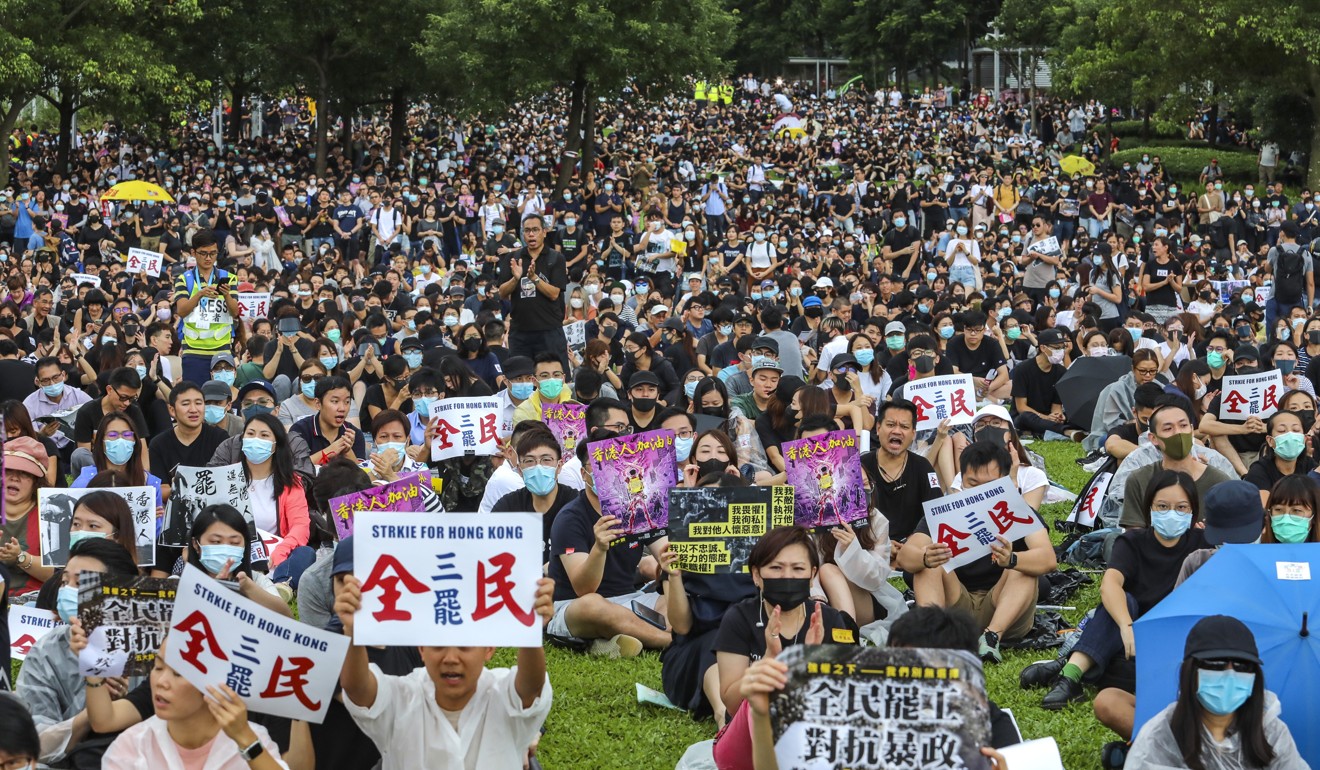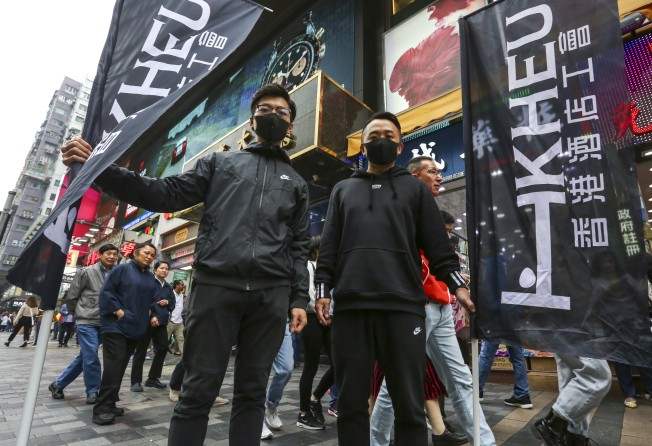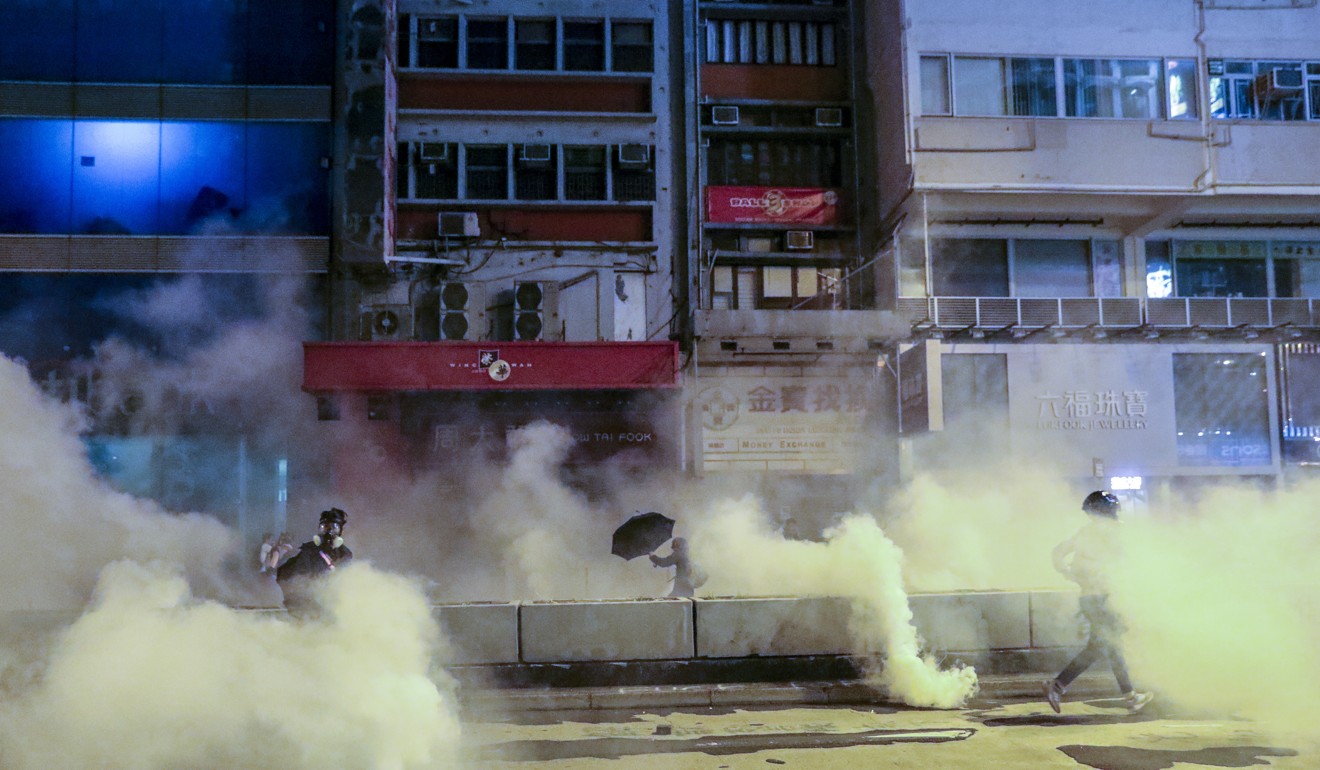
From two-star Michelin restaurant to union organiser, Hong Kong chef’s career path is not what he had in mind
- Alex Tsui always wanted to be one of the city’s top chefs, but now he’s the chairman of the Hong Kong Hotel Employees Union
- At least 24 trade unions have been established this year – almost double the 13 formed in 2018, according to official figures

At 14, Alex Tsui had a very clear career goal – he wanted to train at a Michelin three-star restaurant in France and become one of Hong Kong’s top chefs.
Fast forward 10 years, and the 24-year-old has already spent five years working in a local luxury hotel at a Michelin two-star restaurant, and even started to learn French this year. Everything appeared to going smoothly for Tsui – until the extradition bill protests erupted in June, eventually prompting him to put his dreams aside to devote himself to what became the anti-government movement.
“What’s the point of becoming an exceptional chef if the authorities have suppressed my hometown and turned it into a totally unrecognisable place?” he told the Post.
Last month, Tsui became the first chairman of the Hong Kong Hotel Employees Union, which he co-founded with dozens of fellow industry workers, most of whom he met on encrypted messaging channel Telegram.

The secondary-school graduate also decided to take English lessons to prepare for any public speeches he may have to make, although the union, in its infancy, has fewer than 200 members.
Tsui’s union was one of the many Hongkongers set up as the protests drag on into their seventh month, with many hoping to increase pressure on the government by organising large-scale strikes.
As of last week, at least 24 trade unions had been established this year – almost double the 13 set up in 2018, according to Labour Department figures.
That included the Hong Kong White Collar (Administration and Clerical) Connect Union, the Hong Kong Construction and Engineering Employees General Union, the Hong Kong Information Technology Workers’ Union and the Hospital Authority Employees Alliance.
Dozens of other trade unions from a wide range of industries, including optometry, dental, bartending and even beauticians, are understood to be in the pipeline.
Tsui said these new groups had been working closely with each other and had hoped to change Hongkongers’ perceptions of trade unions.
“We want to introduce a new culture that trade unions are not just about labour rights – they could also consolidate the voices of the industries to resist the authorities,” Tsui said.
He said he believed radical protest, while occasionally necessary, had reached a bottleneck, and argued there was a need to bring together millions of Hongkongers to fight the long-term battle and force the government to address their demands.
A real strike with no time limit was an option, he said.
At least three rounds of citywide strikes have taken place in Hong Kong since August, but they were all focused on disrupting traffic and transport infrastructure over a short time.
Stanley Tsang, vice-chairman of Hong Kong Hotel Employees Union, said that even though the city’s residents had become more active in protests over the past several months, a powerful strike was unlikely to happen in the short term.

More preparation had to be done, the 31-year-old sales and marketing worker said, adding that his union had recruited some 130 members within a month in a sector estimated to have 40,000 workers and which already has a union affiliated with the Federation of Trade Unions.
Tsui said a strike would only succeed if workers did it from the heart, not because they were forced to by traffic disruption.
“Trade unions, therefore, have a responsibility to promote the idea and educate the public,” he said. “The more people that take part, the safer it would be for everyone.”
Veteran unionist Mung Siu-tat, of the pro-democracy Hong Kong Confederation of Trade Unions, said the group had been offering help and advice to people from almost 50 trades, and called the phenomenon a “citywide political awakening”.
He said the confederation’s call for people to set up unions had never been popular in Hong Kong, as many – especially the middle class – still held the perception that such platforms were only for blue-collar workers to handle disputes with employers.
“But the political tide has changed it,” Mung said. “Many people who tried to form unions are actually professionals.”